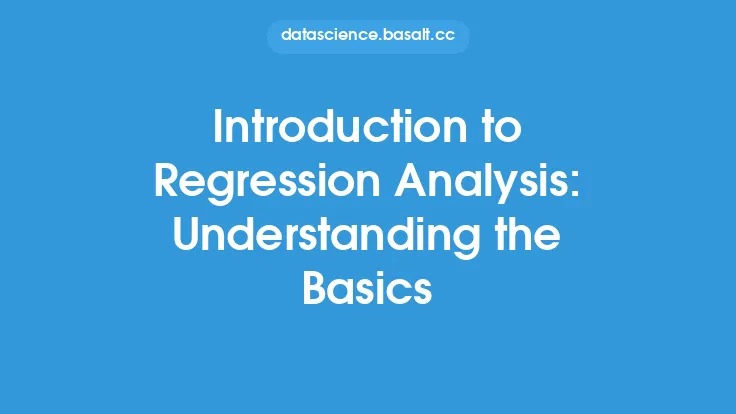Probability theory is a branch of mathematics that deals with the study of chance events and their likelihood of occurrence. It provides a mathematical framework for analyzing and modeling random phenomena, which is essential in various fields, including statistics, engineering, economics, and computer science. The concept of probability is based on the idea that the likelihood of an event can be measured and quantified, allowing us to make informed decisions and predictions.
What is Probability?
Probability is a numerical value between 0 and 1 that represents the likelihood of an event occurring. It is a measure of the chance or probability of an event happening, and it is often denoted by the symbol P. A probability of 0 indicates that the event is impossible, while a probability of 1 indicates that the event is certain. For example, the probability of flipping a coin and getting heads is 0.5, which means that the event has a 50% chance of occurring.
Key Concepts in Probability Theory
There are several key concepts in probability theory that are essential to understanding the subject. These include:
- Experiment: An action or situation that can produce a set of outcomes, such as flipping a coin or rolling a die.
- Outcome: A specific result of an experiment, such as getting heads or tails when flipping a coin.
- Sample space: The set of all possible outcomes of an experiment, such as the set of all possible outcomes when rolling a die.
- Event: A set of one or more outcomes of an experiment, such as the event of getting an even number when rolling a die.
- Probability measure: A function that assigns a probability to each event in a sample space, such as the probability of getting heads when flipping a coin.
Types of Probability
There are two main types of probability: theoretical probability and empirical probability. Theoretical probability is based on the number of favorable outcomes divided by the total number of possible outcomes, while empirical probability is based on the frequency of an event occurring in a large number of trials. For example, the theoretical probability of getting heads when flipping a coin is 0.5, while the empirical probability may be slightly different due to the random nature of the experiment.
Rules of Probability
There are several rules of probability that are used to calculate the probability of events. These include:
- The addition rule: The probability of two or more events occurring is the sum of their individual probabilities, minus the probability of their intersection.
- The multiplication rule: The probability of two or more events occurring is the product of their individual probabilities, if the events are independent.
- The complement rule: The probability of an event not occurring is 1 minus the probability of the event occurring.
Applications of Probability Theory
Probability theory has numerous applications in various fields, including:
- Statistics: Probability theory is used to make inferences about populations based on sample data.
- Engineering: Probability theory is used to design and optimize systems, such as communication networks and transportation systems.
- Economics: Probability theory is used to model and analyze economic systems, such as financial markets and economic growth.
- Computer science: Probability theory is used in machine learning and artificial intelligence to make predictions and decisions.
Importance of Probability Theory
Probability theory is essential in many areas of study and application, as it provides a mathematical framework for analyzing and modeling random phenomena. It allows us to make informed decisions and predictions, and to quantify the uncertainty associated with random events. Probability theory is also a fundamental tool for statistical analysis and inference, and it has numerous applications in fields such as engineering, economics, and computer science.
Conclusion
In conclusion, probability theory is a branch of mathematics that deals with the study of chance events and their likelihood of occurrence. It provides a mathematical framework for analyzing and modeling random phenomena, and it has numerous applications in various fields. Understanding the basics of probability theory is essential for making informed decisions and predictions, and for quantifying the uncertainty associated with random events. By mastering the concepts and rules of probability theory, individuals can develop a deeper understanding of the world around them and make more informed decisions in their personal and professional lives.





